Sugar has always been part of our diet. In nature, we have rejected bitter plants as poisonous, preferring those with a sweet taste. The quest for sugar is therefore instinctive. What's more, sugar is a source of pleasure and energy.
We know we should consume it in moderation, and that we can turn to healthier alternatives to white sugar, but which sugar should we favor? Here's a guide to help you.
Sugar and health
Sugar is everywhere. It's everywhere. The Canadian Sugar Institute estimates that 52g of added sugar is consumed every day. That's more than 9 kilos (20 lbs) a year. Over-consumption of sugar can increase the risk of :
- Tooth decay
- Obesity
- Diabetes
- Cancer
- Nutritional deficiencies (including anemia)
- Digestive disorders
- Low immunity
- Yeast infections
- Menstrual disorders (including premenstrual syndrome)
- Hyperactivity and concentration disorders
- Mood swings, anxiety and depression
- Alcoholism
Not all sugars are created equal. Some are slightly more nutritious, but they all have the potential to be harmful when consumed in excess. In a bid to minimize calories and health impact, some people turn to sweeteners.
Different sugars
- Cane sugar : When unrefined, cane sugar has a dark brown color, indicating that it contains more minerals. Whole cane sugar is preferable to white.
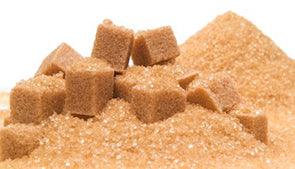
- Coconut sugarRich in minerals, coconut sugar is even more nutritious. It contains prebiotics, a type of fiber that promotes intestinal health.
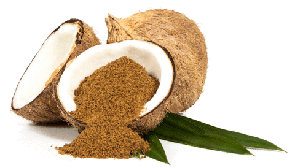
- Maple syrup: Sourced locally, maple syrup is minimally processed and contains a good dose of vitamins and minerals.
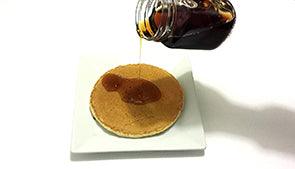
- Honey Honey is a complex food, rich in vitamins and minerals. Raw, it contains antibacterial and antiviral benefits, pollen and royal jelly. The latter two are considered elixirs of well-being.
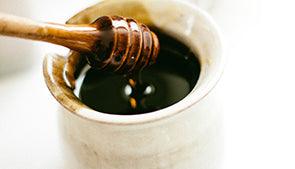
- Molasses : Some are honey devotees, others are molasses preachers. Derived from the processing of cane sugar, green molasses is rich in minerals, particularly iron and magnesium. Opt for green molasses (Blackstrap), which is more nutritious.
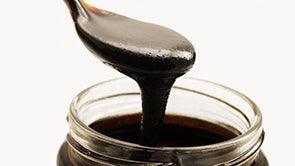
- Agave syrupDerived from the tropical agave plant, this syrup is rich in fructose. Some consider it a healthy, raw, vegan alternative, while others are wary.
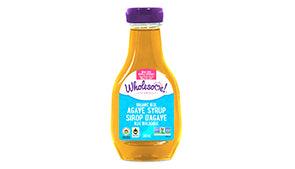
- Fructose: Fructose is often singled out for its harmful effects on health. Metabolized by the liver, it can be responsible for insulin resistance, fatty liver and increased blood lipids.
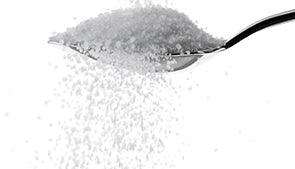
Artificial sugars
Artificial sugars (artificial sweeteners) are compounds manufactured in laboratories. According to a study published in 2017 by the American Heart Association, daily consumption of artificial sweeteners triples the risk of suffering a stroke, dementia or Alzheimer's. However, the artificial sweeteners below can be found in thousands of products on the market.
- High fructose corn syrup (glucose-fructose): Made from corn, syrup is processed in a laboratory to increase the amount of fructose, which enhances the sweetness. Glucose-fructose may be one of the main causes of obesity, diabetes and high blood pressure.
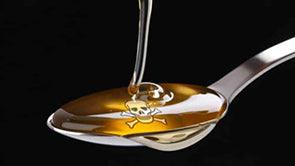
- Aspartame (NutraSweet, Equal). A very common artificial sweetener with a taste 180 times stronger than sugar, to which over 30% of the population experience adverse effects when consuming it. Some scientists link it to risks of breast, ovarian and brain cancer. It has also been described as a neurotoxin, with some research linking it to the onset of neurodegenerative diseases (multiple sclerosis, Parkinson's).
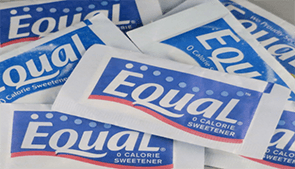
- Sucralose (Splenda): Sucralose has a taste 600 times stronger than sugar. It is found in a wide range of soft and alcoholic drinks, yogurts and jams. Sucralose has a negative impact on intestinal health and is associated with a weakened immune system and risks of liver and kidney damage.
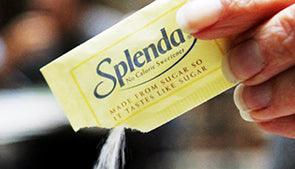
Natural alternatives
Natural sweeteners are sweet-tasting compounds that occur naturally.
- Sugar alcohols (xylitol, erythitol): these calorie-free compounds are increasingly found in oral care products and sweets. Sugar alcohols fight tooth decay while imparting a sweet taste to foods. Be careful not to overdo it, as some sugar alcohols are laxatives.
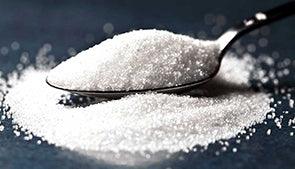
- SteviaTaken from the plant stevia rebaudianaplant, its extract is 300 times sweeter than table sugar. Stevia has no known adverse effects on health, and some studies indicate that it may even have certain benefits.
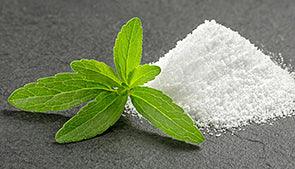
It's up to each and every one of us to make healthy choices when it comes to sugar consumption. Consider reducing your intake of added sugar, choosing more nutritious options and exploring natural alternatives. The employees of La Boite à Grains can help!
About the author
Naturopaths of La Boite à Grains
Team of licensed and certified naturopaths (ND) in Gatineau, Outaouais.
Article reviewed by Véronique Cousineau, Naturopath


